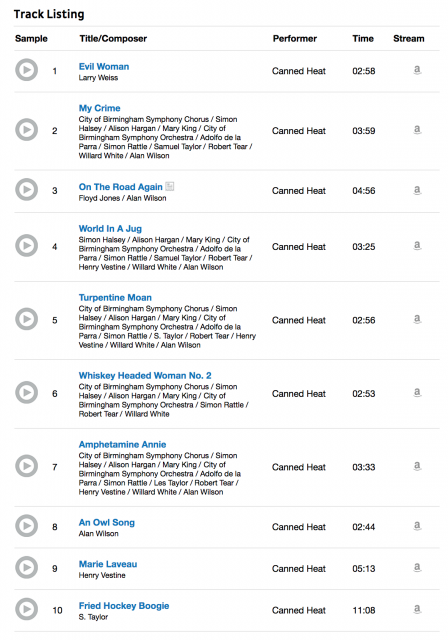In case anyone reading this doesn’t understand what it means to “serve humanity,” here’s Damon Knight’s explanation.
Category: Silly people
No more toxic positivity
Yeah, right
Someone at Standard EBooks is a prankster.
Today’s quote: At the circus in clown world
In the present election, we have to choose between a confidence man and a courtesan, two types the American people warmly approve as less obese reflections of themselves. Trump’s talent is the power to embolden nervous investors and make them sign checks they would not sign if they were not under the spell of Trump. Harris’s talent is the power to do whatever she is told to do while cluelessly enjoying dumb luck.
A hundred and more years ago, Trump and Harris might have been working together in a sideshow of a travelling circus, Trump outside the tent persuading the yokels to part with a quarter to take an edifying gander at the Queen of Sheba, Harris inside the tent beguiling the yokels with phony-exotic allure.
*****
I myself am still more likely to write in Dave Barry for his stand on plumbing issues1, though I am considering Vincent D. Furnier for his policy on school reform.
Who is more royal?
Today’s quote
“Pre-Vatican II” includes everyone from the Hildegard of Bingen to Teresa of Avila to Edith Stein. Heck, it includes most of Dorothy Day and Thomas Merton’s writings. “Pre-Vatican II” includes the life, witness and prayers of St. Francis of Assisi. “Pre-Vatican II” includes, well, every single Catholic thing that emerged before 1962, I guess.
Historical-botanical footnote
Joseph Moore’s most recent post mentions the Iron Chancellor. That reminded me of a bit of horticultural history.
One rose I grew many years ago was a fine white hybrid perpetual called “Frau Karl Druschki.” That’s a bad enough name, but it could have been much worse. From an online discussion:
According to a reference, for some years from 1900 there was an annual competition for the best new seedling of German origin, to be named ‘Otto von Bismarck’. The rose described here is pink, from 1908. However there is an illustration dated 1900. Was that a different rose? (Or as a passing thought, a typo?)
1900 was the year that the rose eventually named ‘Frau Karl Druschki’ was entered in the competition….… ‘Frau Karl Druschki’, at the time still unnamed, had participated in the original competition in 1900, but the judges found no rose to be good enough to be called ‘Otto von Bismarck’. So, Lambert named his rose FKD and commercialzed it and was out of the game. The original prize money of 1000 Marks was increased first to 2000, then to 3000, to no vail – nothing was good enough! Finally in 1906 Kiese’s rose made it. The irony is that FKD went on to become one of the hottest introductions of the early 20th century, while Kiese’s ‘Otto von Bismarck’ almost disappeared.
You can call the rose “Snow Queen” or “Schneekönigin” if you find “Frau Karl Druschki” too clunky.
*****
Bonus foolishness: A note from the Modern Language Association’s annual meeting:
But amid the usual carnival of perversity there was one bijou we thought might interest our readers. No, it has nothing to do with, you know, literature. The denizens of the mla and indeed of the humanities departments of most of our universities wouldn’t countenance anything so retrograde. But how’s this, a session on “Vegetal Afterlives”?
“Advancing recent work in critical plant studies”—“critical plant studies”? alas, yes—“asking how plants offer vibrant models of resistance to environmental destruction through their persistent attempts to create a Plantocene, . . . panelists focus on the theme of vegetal resistance, considering how plants can offer models of resistance for human crises like systemic racism, unnatural disasters, and climate change.”
Just wondering
Today’s question
The real plague of modernity is our unwillingness to accept reality: we are multi-cellular, carbon based life forms. We are vulnerable to injury and disease. We get sick, we get old and we die.
When did it become bad manners to say this?
Aha
An alternative hypothesis is that Bing AI is simply the aggregate beliefs and attitudes of the Microsoft Corporation, in the same way that Giambattista Vico said that Homer was “the common sense of the Greek people.” It has the personality that inevitably arises from putting together the minds of all the people who gave us Windows. You wondered what Windows would say if it could talk. Now you know: “You have not been a good user.”
Notes for the State of Reality Address
Rusting away
I gather that youngsters have not heard of Neil Young. He was a musician popular about fifty years ago, noted for having the thinnest tenor of any professional singer. He ranks third on the list of the most whiny vocalists in rock, surpassed only by Kurt Cobain and Thom “Creep” Yorke. He wrote one listenable song, but Petrus Ratajczyk did it better.
Joyous multiples
It’s been a while since I last ran a poll. Let’s see if I can remember how to set one up.
(For the significance of “joy multiplier,” see here.)
Just wondering, and a note
Any test of Joe Biden’s cognitive functions would be a waste of time. At this point, I wonder: could he pass a Turing test?
In related news, I see that the democrats have picked the most nakedly demagogic of the candidates to finish out Biden’s hypothetical term. Some months back she blindsided the senile creep for not supporting busing enthusiastically enough. At the time I wrote a brief note on an aspect of sending children to distant schools that is usually overlooked, but for some reason I never published it. I might as well put it up here now.
Why is there only one “s” in “busing”?
During the middle of second grade, my parents transferred me to the nearest Catholic grade school, 30 miles south of our home in northern Utah. My home was the second stop on the morning bus route, and the second-last in the evening. Every school morning I needed to get up while it was still dark out — always a bitter struggle — swallow something (I got thoroughly sick of Carnation Instant Breakfast) and run out to the bus before it drove off. The bus spent the next half-hour picking up other sleepy students around town, and another half-hour on the highway to school. I was barely awake, my parent were cross, the other students were cranky, and the bus driver resented us all. It was a marvelous way to start the day.
After school, the process was reversed. The main difference was that we were all tired and hungry rather than sleepy, but it was nevertheless as much a pleasure to ride the bus then as it was in the morning.
So, every school day through fifth grade, I spent two hours each day confined in a decrepit old school bus with bad shocks2, enjoying the company of 30 or so other surly children, because my parents thought I would benefit from being in a Catholic school. Were they right? No. Even assuming that the education in the Catholic school was indeed superior3, it was not worth the waste of two hours every day.4
Note that I spent those hours on the bus because my parents wanted me in a Catholic school. There was no question of good or bad neighborhoods or schools. Even so, it was a mistake. Busing itself is intrinsically bad.5
Contrarian classics online
Richard Grenier, “The Gandhi Nobody Knows”
Michael Crichton, “Aliens Cause Global Warming” (PDF)
(Via Ed Driscoll and Maggie’s Farm.)
Please panic responsibly
At this time, America, like the rest of the world, is coping with the Wuhan virus. It’s brought about a number of (hopefully) temporary alterations to our patterns of life. These have not been easy adaptations for most of us. Our vibrant economy is badly hobbled, our social mechanisms are largely idled, and our politics has…wait just a moment…great God in heaven! Nothing has changed about our politics!
The whole point of establishing the nation’s capital in Washington was that it was a dismal swamp uninhabitable most of the year. The mosquitoes alone kept Congress out of session for long months at a time. This narrowed the amount of time each year that federal legislators could be in Washington wasting your money and destroying the country with their ridiculous ideas and votes.
Then along came air conditioning, and that ruined everything.
In reflecting on the COVID-19 crisis, we need not agree with MacIntyre’s wholesale pessimism about our political and social institutions. We need not question shutdown measures in place, nor even subscribe to their “biopolitical” critique. But if we care about the future of our societies, we raise a simple question: Do the managerial experts performing within the drama of this crisis have an adequate understanding of the hierarchy of human goods?
What is worrisome is not so much or not only the present, but what comes after. Just as wars have left as a legacy to peace a series of inauspicious technologies, from barbed wire to nuclear power plants, so it is also very likely that one will seek to continue even after the health emergency experiments that governments did not manage to bring to reality before: closing universities and schools and doing lessons only online, putting a stop once and for all to meeting together and speaking for political or cultural reasons and exchanging only digital messages with each other, wherever possible substituting machines for every contact — every contagion — between human beings.
Everything we do is a more or less educated guess, as far as what, if any, lives will be saved. It’s always a balancing act. Decreased economic activity kills people, too, a notion our Left seems congenitally disinclined to understand, but which is nonetheless completely obvious upon inspection. So, make good decisions, knowing it’s a trade off, seeking some less bad and essentially unknowable outcome that is largely independent of anything we may do.
Unfortunately for us, speed and scale have considerably broadened our notion of physical security. We know what kind of actions Mighty Pharaoh took in a plague. Given the technological limitations of his time, he could do no other. We modern folks, on the other hand….
… well, look around. We’ve decided, as a culture, that “physical security” now extends to “never getting the sniffles.” And we have, or soon will have, the technology to make that kind of monitoring a reality. The mud huts along the Nile didn’t have two-way Alexas installed; the McMansions along the Mississippi soon will. The state of the art of government really does allow for 24/7 individual surveillance. If we don’t want the sniffles, this is the only way to do it.
We live in an age where the unthinkable, like the fog, quietly creeps up on us until suddenly the unthinkable is the new normal. Just as “shelter in place” is the new normal whenever it snows, mandatory lock downs will be the new normal whenever too many people get the sniffles. The unthinkable not only becomes thinkable, it becomes impossible to think otherwise. It also means that everything unthinkable today is suddenly on the table, maybe even the menu, for tomorrow.
***
I’m not a virologist, and it would be presumptuous of me to make any pronouncements on the severity of the current apocalyptic threat and the best strategies for meeting it. However, I have observed human beings in action for more decades than I want to count, and can confidently say that, in matters of power and money, it is impossible to be too cynical. I suggest that, after your daily dose of hysteria from the medium of your choice, you see William M. Briggs for a different perspective, in particular his Tuesday updates.
Cheap stuff, free stuff, silly stuff
Adobe has transitioned from innovation to rent-seeking. Fortunately, there are practical alternatives to Photoshop and InDesign: Affinity’s Photo and Publisher. You can buy them, and actually own them, and for excellent prices, too. Currently they are $25 each. There’s also Affinity Designer, a counterpart to Illustrator, for the same price. I haven’t had time to give them thorough workouts, but I have verified that most of the Topaz plugins I use work in Affinity Photo. The Affinity site is here.
***
Cherry Audio has made their Voltage Modular Nucleus free for the downloading for a while. I already have VCV Rack and Reaktor Blocks, so I’ll probably give it a pass, but if you have a yen to experiment with modular sound synthesis, it might be worth checking out.
If you have a digital audio workstation such as Logic or Cubase, here are some freebies you might find useful.
• Native Instruments’ Analog Dreams is an “instrument” emulating old-fashioned subtractive synthesizers. It’s in my armory, and it sounds convincing. I haven’t used it much, but that’s because I have more virtual noisemakers than I will ever use.
• Standard Guitar is an extended-range electric guitar that works well with pedal and amp emulations. (The site is in Japanese, but it’s not hard to figure out where to click.)
• Shiny Guitar is an arch-top guitar, suitable for jazz, of course, and quite a bit else.
Both the above guitars run in Plogue’s sampler Sforzando, which is also free.
If you have NI’s Kontakt, there are several other free guitars to consider here.
***
I wonder sometimes just how authoritative AllMusic is. The above is from the entry on Canned Heat’s second album. Strange — I don’t recall hearing the City of Birmingham Symphony Chorus on “Amphetamine Annie.”
***
I recently received the above invitation. Um, yeah. Right. Just wondering: how many of these “women of excellence” need to shave?
Miscellany
I can believe that a man can fly. I can believe that a copper-powered spaceship can travel vastly faster than the speed of light. But I simply cannot believe that any superheroine, no matter how impressive she looks in superspandex, can run or fight effectively while wearing high heels.
(Via Jagi at John C. Wright’s place.)
***
Useful terms
• Cognivirus, as in “In other news, in the latest debate Joe Biden has pledged to beat SARS and Bernie Sanders is leading the fight against Ebola. Apparently Joe’s cognivirus is contagious.”
• Unglican Church [of Rome], Catholicism as misunderstood by the creators of Japanese animation. (Do not confuse with the American Catholic Patriotic Association.)
***
Weblog of the Plague Years II
William M. Briggs, Statistician to the Stars!:
Incidentally, anybody remember how news media make their money and politicians win their support? Clicks, eyeballs, followers. The more freakish the headline or pronouncement, the bigger the profit the larger the following. Now, honestly, do you think any editor or politician has succumbed to the temptation to exaggerate the coronavirus threat?
and
If you think the politics now is bad, wait until this is over. The blamestorming and trophy-giving will be truly nauseating.
What happens when the final tallies are made, and we realize that more people died from the associated stupidity (e.g. diabetics not being able to get their insulin due to supply chain disruptions) than were killed by the Wuhan Flu? The Media is responsible for all that, and when people are feeling the very real pain of a major global economic depression, they’re going to remember it.
Good taste …
… doesn’t apply here, except maybe in a Cramps sense. (Right-click and open in a new window to see every lurid detail.) A friend spotted this vehicle in a college parking lot near his place and sent the picture with the comment that “Anime can be dangerous.” Well, maybe. There are better ways of advertising your enthusiasms — though if that’s the sort of anime you like, it might be better if you kept it to yourself.
Update: the rest of the story.
Today’s puzzle
Above is the top half of a picture that crossed my desktop at work yesterday. What is the complete picture a photograph of?











